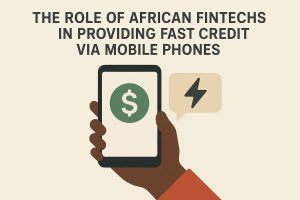As the world continues to evolve technologically, Africa is emerging as a surprising leader in digital innovation. One of the most notable shifts on the continent is the rapid adoption of digital cards. These tools are not only changing how people make transactions but also reshaping the broader financial landscape.
From bustling urban centers to remote rural villages, consumers are increasingly relying on digital solutions for everyday needs. The growing penetration of smartphones and internet access has created fertile ground for financial technologies. In this context, digital cards have become essential instruments in enabling safer, faster, and more inclusive payment systems.
Beyond plastic: how digital cards are redefining access to finance

Traditional banking services have long excluded large portions of the African population. In countries where physical bank branches are sparse and infrastructure is limited, the shift toward digital has proven to be a game-changer. Digital cards offer an alternative that eliminates the need for brick-and-mortar institutions.
Through partnerships with fintech companies and mobile networks, many African nations are seeing a surge in digital payment options. These digital cards are often linked directly to mobile wallets, which users can fund via cash agents or mobile transfers. As a result, individuals who were previously unbanked can now perform transactions, receive salaries, and even shop online—all through their mobile devices.
Securing the future: trust and technology in African finance
With any financial innovation comes concerns about security. Fortunately, digital cards often come equipped with features that enhance user safety. Unlike traditional debit or credit cards, digital versions can be locked, unlocked, or even deleted in real-time. This minimizes the risk associated with theft or fraud.
Additionally, many fintech providers are leveraging biometric authentication and two-factor verification to safeguard transactions. These security measures not only build trust among users but also increase confidence in the broader financial system.
Key security features fueling adoption
Each of these innovations helps reduce vulnerability, allowing users to feel more confident in transitioning from cash-based to digital economies. The popularity of digital cards is not accidental. Several features are designed to instill peace of mind and facilitate everyday use:
- Real-time transaction monitoring and alerts
- Temporary card numbers for one-time purchases
- Dynamic CVVs that change regularly
- Seamless card freezing options from mobile apps
Financial inclusion: a new chapter for the unbanked
The promise of digital cards extends far beyond convenience. In a continent where over half the population lacks access to traditional banking, these tools can drive profound socioeconomic change. By lowering entry barriers and offering flexible solutions, digital cards are empowering individuals from all walks of life.
Women in rural areas, young entrepreneurs, and gig workers are just a few of the groups benefiting from this digital transformation. In many cases, these populations have long been excluded from formal financial systems. Now, with the ability to participate in digital commerce, their economic potential is being unlocked.
Local solutions for local challenges
Many African startups are designing digital cards with specific local needs in mind. For example, some services support multiple languages, offline functionality, or integration with local savings groups. These adaptations ensure that the solutions are not just imported concepts but truly homegrown tools for financial progress.
Looking ahead: what the future digital cards
Africa’s embrace of digital cards is only the beginning. As infrastructure improves and regulatory frameworks catch up, even more innovations are expected to surface. Integration with international platforms, cross-border payments, and digital lending are just a few of the areas likely to expand.
Policymakers and private sector leaders must now work together to foster an ecosystem that encourages safe, inclusive growth. Investment in education, infrastructure, and internet access will be critical to sustaining this momentum and ensuring that no one is left behind.




